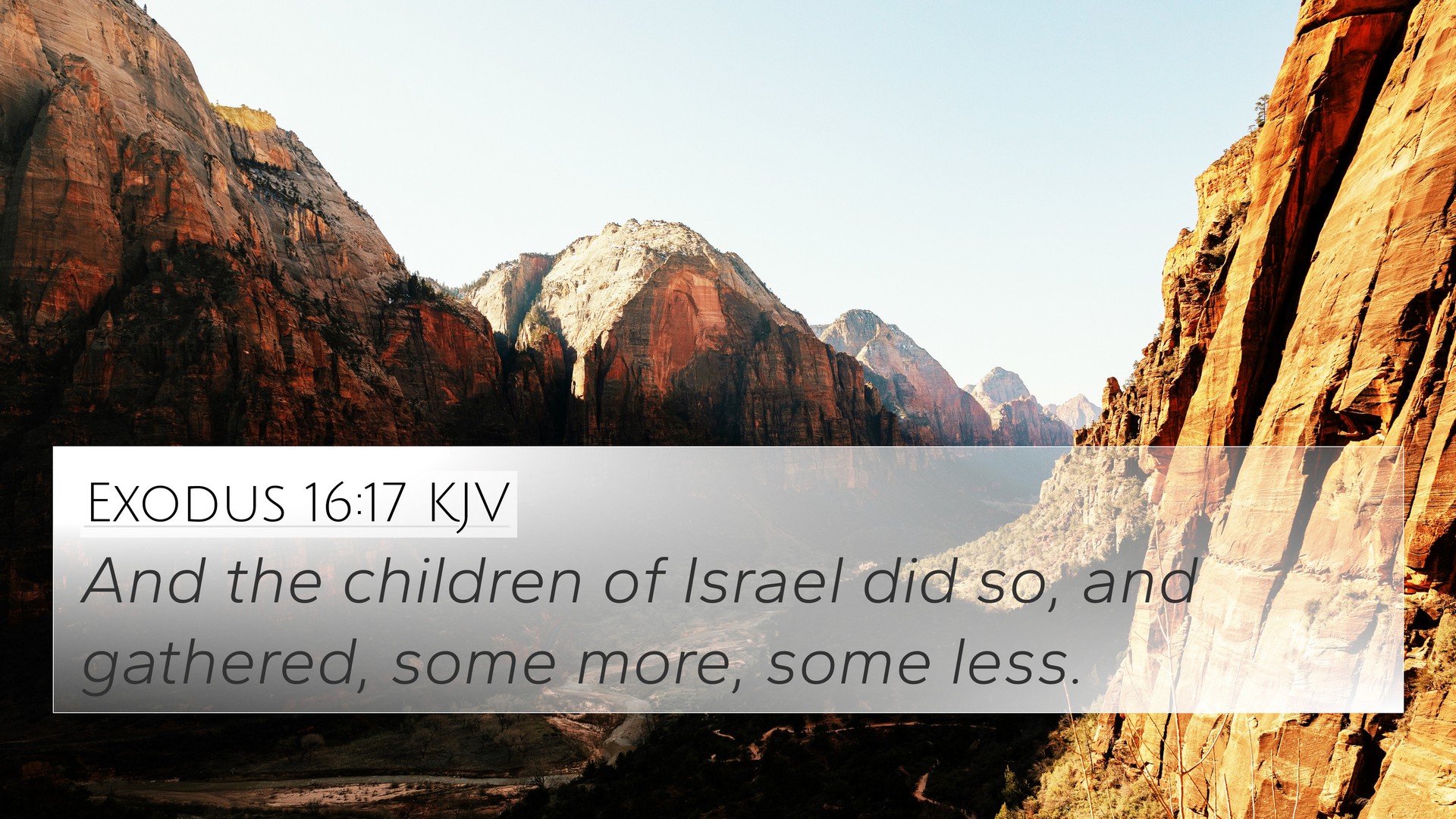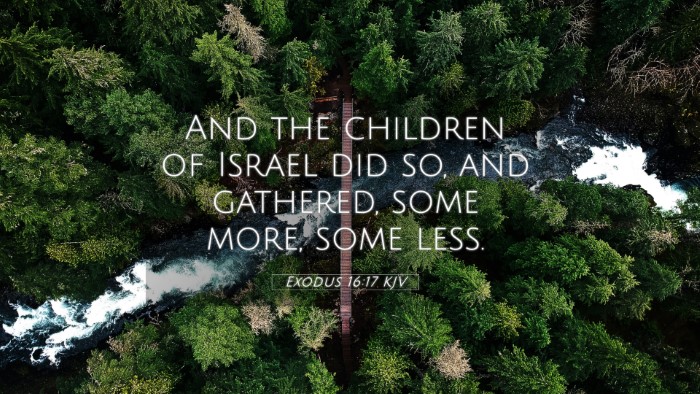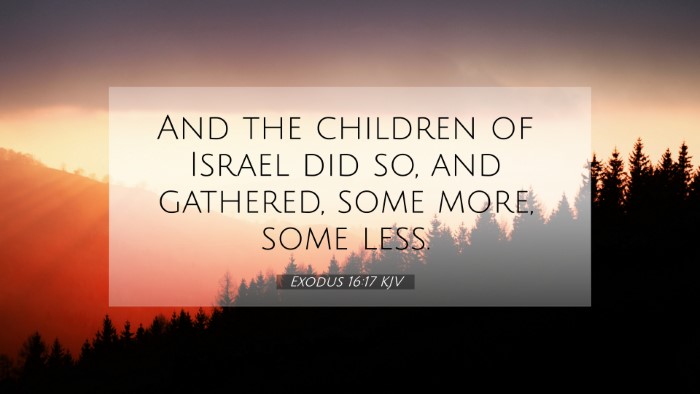Understanding Exodus 16:17
Exodus 16:17 states: "And the children of Israel did so, and gathered, some more, some less." This verse is taken from the narrative of the Israelites receiving manna in the wilderness, illustrating their obedience and varying responses to God's provision.
Summary of the Verse's Meaning
This verse represents a critical moment in the Israelites' journey, showcasing both their compliance with God's commands and the diversity in their responses to His provision. It highlights key themes of obedience, resourcefulness, and the human condition in reliance on divine sustenance.
Commentary Insights
Matthew Henry's Commentary
Matthew Henry points out that the Israelites were commanded to gather manna daily, which required faith in God's continued provision. This verse shows that they followed God's instructions, but their responses varied based on individual faith and necessity. Some gathered more out of fear or greed, while others collected less, trusting that God would supply their needs. This diversity reflects human behavior in spiritual matters, emphasizing that God provides enough for each individual's situation.
Albert Barnes' Notes
Albert Barnes elaborates on the practical implications of this verse, noting that it reflects God's intention for the Israelites to rely solely on Him each day. The act of gathering manna was not merely about physical sustenance but also served as a test of their trust and obedience. By highlighting that some gathered more and some less, Barnes draws attention to the varying degrees of faith among the people, indicating that God accommodates each person's unique circumstances and trust levels.
Adam Clarke's Commentary
Adam Clarke discusses the historical and cultural context of the manna gathering. He emphasizes that the differing amounts collected by members of the community illustrate the personal relationship each individual has with God. Clarke emphasizes that this verse reflects not only the significance of obedience to divine instruction but also the reality of human nature—people respond differently to God's provision based on their circumstances, experience, and faith.
Cross-References
Exodus 16:17 is interconnected with several other biblical passages that enhance its understanding:
- Numbers 11:7: Discusses the appearance of manna, reinforcing its miraculous nature.
- Deuteronomy 8:3: Reminds the Israelites that God provides not just bread, but sustenance that feeds the soul.
- Matthew 6:11: Jesus' teaching on praying for daily bread reflects the same reliance on God's provision.
- John 6:31-35: Jesus references manna as a foreshadowing of Himself—the bread of life.
- Philippians 4:19: God promises to supply all needs, echoing the provision found in Exodus.
- Psalm 78:24-25: Reflects on God's provision of manna and the people's reception of it.
- 1 Corinthians 10:3-4: Paul mentions spiritual food and drink, linking it back to the experiences of Israel.
Thematic Connections
Understanding this verse within its thematic context is crucial for deeper biblical study. Here are some aspects to consider:
- Trust in God: The Israelites had to trust that daily provision would come.
- Obedience: Following God's commands led to blessings and sustenance.
- Community Dynamics: Different responses within the community reveal God's approach to individual needs.
Practical Applications
Exodus 16:17 teaches us about reliance on God and daily faithfulness. We can apply these lessons in our own lives by:
- Trusting God for our daily needs and stepping forward in faith.
- Understanding the importance of obedience to God's guidance.
- Recognizing and celebrating the diversity of faith expressions within a faith community.
Conclusion
The verse from Exodus 16:17 serves as a profound reminder of God's provision and our call to trust Him daily. Through the insights from various public domain commentaries and its connections with other scriptures, we gain a holistic view that encourages obedience, reliance, and appreciation for God's continuous sustenance in our lives.


